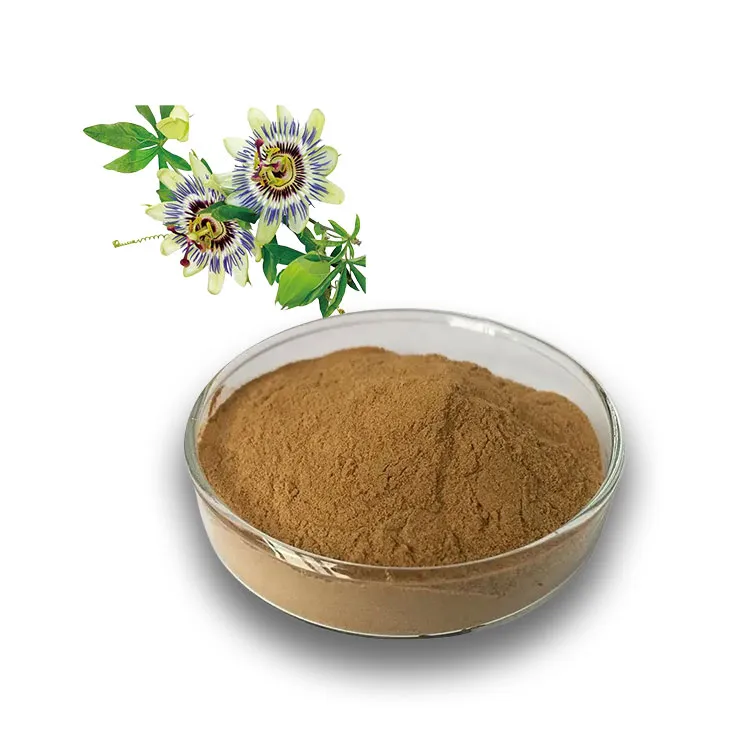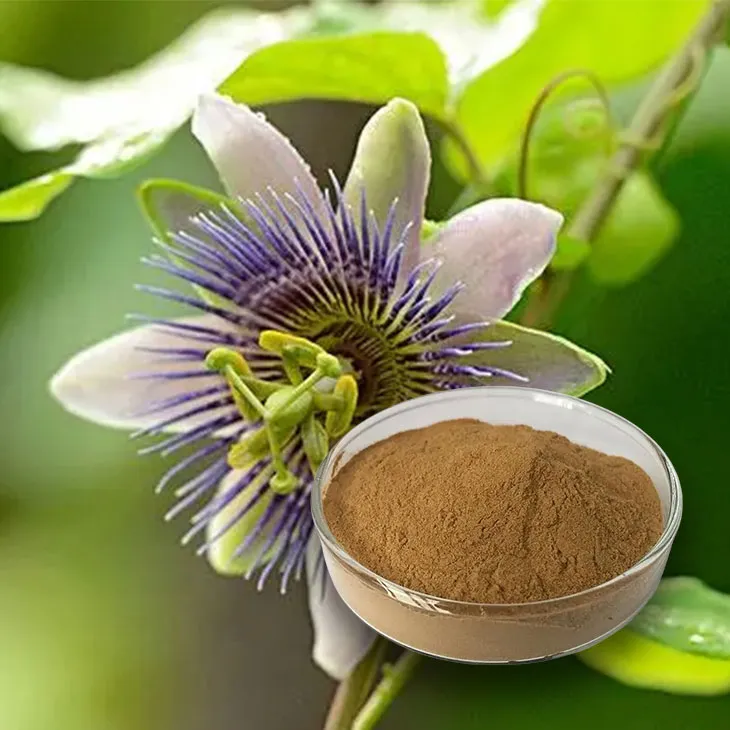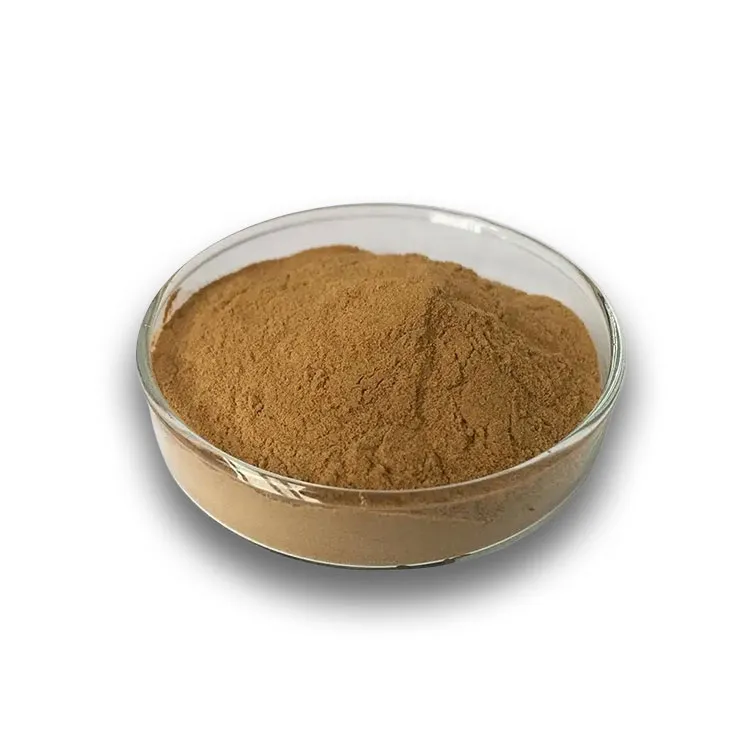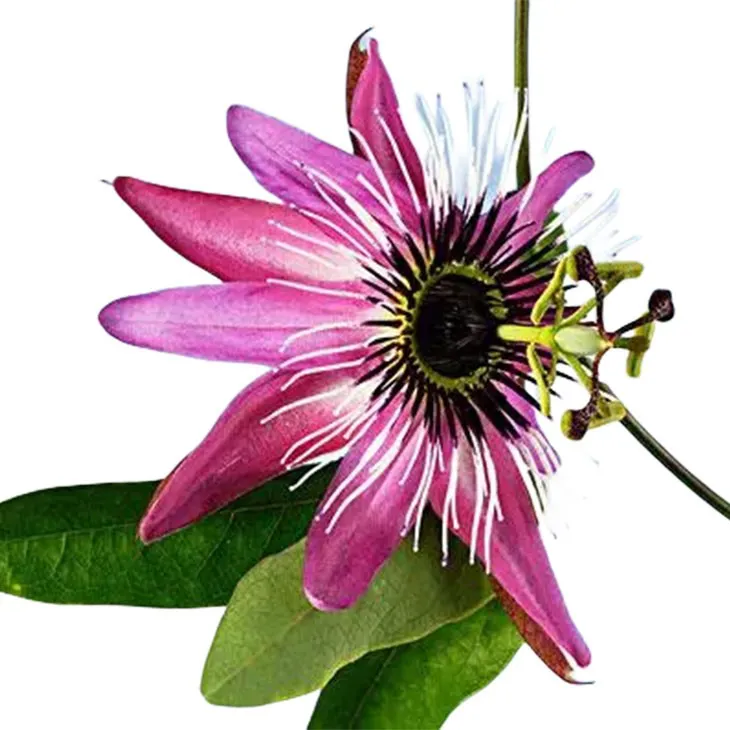- 0086-571-85302990
- sales@greenskybio.com
Chinese Passionflower Extract Factories.
2024-12-02

1. Introduction to Chinese Passionflower Extract Factories
Chinese Passionflower Extract factories are playing a significant role in the global herbal extract industry. With the increasing demand for natural and herbal products, these factories have emerged as important players. China's vast territory and diverse climate conditions provide a favorable environment for passionflower cultivation. Passionflower, known for its potential health benefits, has become a valuable raw material for these factories.
These factories are not only focused on production but also on research and development. They strive to improve the extraction process, enhance product quality, and explore new applications of Passionflower Extract. The development of these factories is also in line with China's efforts in promoting the traditional Chinese medicine and natural health product industries.

2. Advantageous Natural Environment for Passionflower Growth
China's rich biodiversity offers an ideal natural environment for passionflower growth. Different regions in China, such as the southern areas with relatively warm and humid climates, are suitable for passionflower cultivation. The availability of suitable land and climate conditions ensures a stable supply of high - quality passionflower raw materials.
Moreover, China has a long history of agricultural cultivation. The local farmers have accumulated rich experience in passionflower cultivation. They are familiar with the growth habits of passionflower, including the appropriate soil conditions, watering frequencies, and pest control methods. This traditional knowledge, combined with modern agricultural techniques, further guarantees the quantity and quality of passionflower production.

3. Professional Production Teams
One of the key factors contributing to the success of Chinese passionflower extract factories is their professional production teams. These teams are composed of experts in various fields, including botanists, chemists, and production engineers.
3.1 Botanists
Botanists play a crucial role in the raw material collection stage. They are responsible for identifying the right species of passionflower, ensuring that only high - quality and suitable passionflower plants are used for extraction. They also study the growth patterns of passionflower in different regions of China, providing valuable information for cultivation optimization.
3.2 Chemists
Chemists in these factories are mainly engaged in the extraction and purification processes. They are well - versed in different extraction methods, such as solvent extraction and supercritical fluid extraction. They constantly explore and optimize these methods to obtain the purest and most effective passionflower extract. Additionally, chemists are also responsible for analyzing the chemical composition of the extract, ensuring that it meets the required quality standards.
3.3 Production Engineers
Production engineers are in charge of the overall production process. They design and optimize the production line, ensuring efficient and continuous production. They also manage the equipment used in the factories, making sure that all the machinery operates properly. Their expertise in production management helps to reduce production costs and improve production efficiency.

4. Adherence to International Quality Standards
Chinese passionflower extract factories attach great importance to product quality and adhere to international quality standards. This is essential for their products to enter the global market.
Quality control starts from the raw material selection. The factories have strict criteria for passionflower raw materials, including the absence of pesticides and heavy metals. During the production process, various quality control measures are implemented at each stage. For example, in the extraction process, the temperature, pressure, and extraction time are carefully monitored to ensure the consistency of product quality.
These factories also invest in advanced testing equipment. They can conduct comprehensive tests on passionflower extracts, such as testing for the content of active ingredients, purity, and stability. By adhering to international quality standards, Chinese passionflower extract factories have won the trust of international customers and have established a good reputation in the global market.

5. In - depth Research on Passionflower Extract
In - depth research on passionflower extract is being carried out in Chinese factories. Scientists in these factories are constantly exploring the potential properties of passionflower extract.
Anti - anxiety effect is one of the important research areas. Studies have shown that certain compounds in passionflower extract may have a calming effect on the nervous system, which can be used to relieve anxiety symptoms. Through in - vitro and in - vivo experiments, researchers are trying to understand the mechanism of action of these compounds and develop more effective anti - anxiety products.
Another research focus is on the sleep - promoting effect. Passionflower extract has long been used in traditional medicine to improve sleep quality. Modern research is aiming to identify the specific active ingredients responsible for this effect and develop standardized products for the treatment of insomnia.
In addition to these, research on passionflower extract's antioxidant, anti - inflammatory, and immune - modulating effects is also in progress. These studies will not only expand the application scope of passionflower extract but also provide scientific basis for the development of new health products.
6. Continuous Innovation and Improvement
Chinese passionflower extract factories are committed to continuous innovation and improvement. In the face of fierce global competition, they are constantly seeking ways to improve their competitiveness.
Innovation in extraction technology is one aspect. For example, they are exploring the use of new solvents and extraction techniques to improve the extraction efficiency and product quality. Some factories are also investing in research on green extraction methods to reduce environmental impacts.
Product innovation is also a key area. By combining passionflower extract with other natural ingredients, new health products are being developed. These products are designed to meet the diverse needs of consumers, such as those with different health conditions or preferences.
In addition, these factories are also improving their production management systems. Through the introduction of advanced management concepts and information technology, they are enhancing production efficiency, reducing waste, and improving overall enterprise management level.
7. Impact on the International Market of Herbal Extracts
Chinese passionflower extract factories are making a significant impact on the international market of herbal extracts. Their high - quality products, competitive prices, and continuous innovation have attracted the attention of international customers.
In the global herbal extract market, Chinese passionflower extract has gradually occupied a certain market share. It is used in various fields, such as the pharmaceutical industry, the food and beverage industry, and the cosmetics industry. For example, in the pharmaceutical industry, passionflower extract - based products are being developed for the treatment of anxiety and insomnia. In the food and beverage industry, passionflower extract is added to functional drinks and health foods as a natural ingredient. In the cosmetics industry, its antioxidant and anti - inflammatory properties are utilized in skin care products.
Moreover, the development of Chinese passionflower extract factories has also promoted international cooperation in the herbal extract industry. They are collaborating with international research institutions and enterprises, sharing technology and experience, and jointly promoting the development of the global herbal extract industry.
FAQ:
What are the advantages of Chinese passionflower extract factories?
Chinese passionflower extract factories have several advantages. Firstly, China's rich biodiversity offers an ideal environment for passionflower growth, providing a stable source of raw materials. Secondly, they have professional teams proficient in the entire production chain from raw material collection to final product packaging. Also, they adhere to international quality standards, making their products highly competitive in the global market. Moreover, in - depth research on passionflower extract is carried out to explore more potential properties.
How do Chinese passionflower extract factories ensure product quality?
These factories ensure product quality in multiple ways. They start with high - quality passionflowers sourced from areas with suitable growth conditions in China. Professional teams are involved in every step of the production process, from collection to packaging, following strict procedures. They also adhere to international quality standards, which likely include quality control measures at different production stages such as raw material inspection, intermediate product testing, and final product verification.
What kind of research is being done in Chinese passionflower extract factories?
In - depth research is being carried out in these factories. The focus is on unlocking more potential properties of passionflower extract, such as its anti - anxiety and sleep - promoting effects. This research may involve various scientific methods, including laboratory experiments, clinical trials (if applicable), and analysis of the chemical composition of the extract to better understand how different components contribute to its properties.
Why are Chinese passionflower extract factories competitive in the global market?
Chinese passionflower extract factories are competitive in the global market for several reasons. Their access to high - quality passionflowers due to China's favorable natural environment gives them an edge in terms of raw material quality. The professional production teams ensure efficient and high - quality production processes. Adherence to international quality standards makes their products acceptable worldwide. Additionally, continuous research and innovation help them to develop products with more desirable properties, meeting the diverse needs of the global market.
How do Chinese passionflower extract factories contribute to the herbal extract industry?
They contribute in multiple ways. Their high - quality passionflower extracts enhance the reputation of the herbal extract industry. By conducting research on passionflower extract, they add to the knowledge base of the industry regarding the potential uses and properties of this particular herb. Their presence in the global market also increases the overall competitiveness of the herbal extract industry, and they may inspire other factories to improve their production and research efforts.
Related literature
- The Production and Quality Control of Herbal Extracts in China"
- "Research on the Medicinal Properties of Passionflower Extracts"
- "The Global Market of Herbal Extracts: The Case of Passionflower"
- ▶ Hesperidin
- ▶ citrus bioflavonoids
- ▶ plant extract
- ▶ lycopene
- ▶ Diosmin
- ▶ Grape seed extract
- ▶ Sea buckthorn Juice Powder
- ▶ Beetroot powder
- ▶ Hops Extract
- ▶ Artichoke Extract
- ▶ Reishi mushroom extract
- ▶ Astaxanthin
- ▶ Green Tea Extract
- ▶ Curcumin Extract
- ▶ Horse Chestnut Extract
- ▶ Other Problems
- ▶ Boswellia Serrata Extract
- ▶ Resveratrol Extract
- ▶ Marigold Extract
- ▶ Grape Leaf Extract
- ▶ blog3
- ▶ blog4
-
The best lemon juice powder in nature.
2024-12-02
-
Organic Vitamin K2 Powder Suppliers
2024-12-02
-
Bulk purchase of L - tyrosine.
2024-12-02
-
Vitamin K2 Manufacturers
2024-12-02
-
100% Pure Natural Rutin.
2024-12-02
-
Chinese Citrus Bioflavonoid Suppliers.
2024-12-02
-
Lemon Balm Extract
2024-12-02
-
Shikonin
2024-12-02
-
Troxerutin
2024-12-02
-
Yellow Pine Extract
2024-12-02
-
Pomegranate Extract
2024-12-02
-
Bitter Melon Extract
2024-12-02
-
Artichoke Leaf Extract
2024-12-02
-
White Willow Bark Extract
2024-12-02
-
Green coffee bean Extract
2024-12-02
-
Europen Bilberry Extract
2024-12-02





















